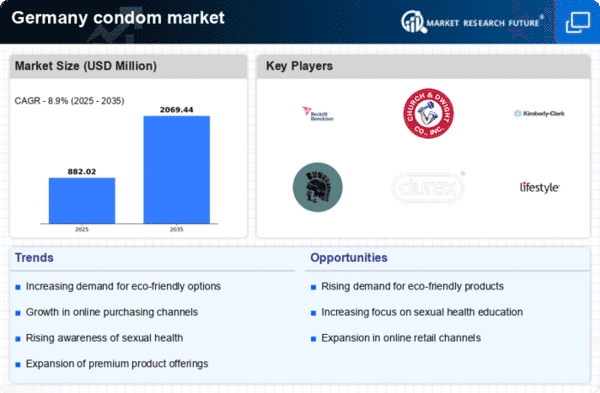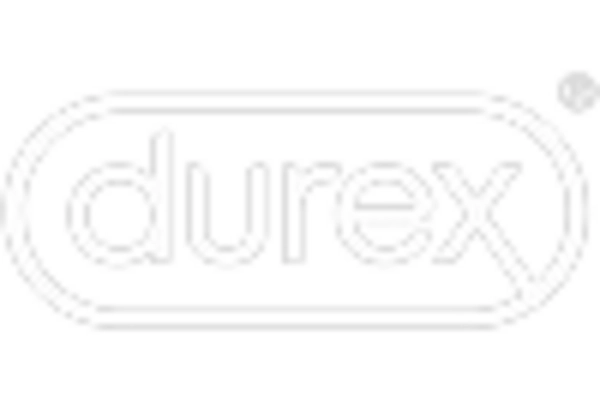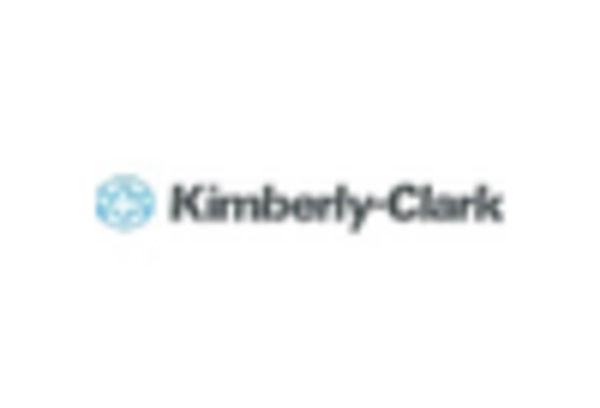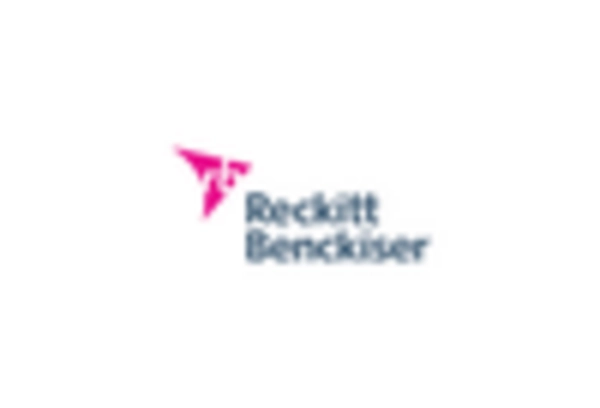Changing Social Norms
Shifts in social norms regarding sexual behavior and relationships are influencing the condom market in Germany. As society becomes more open about discussions surrounding sex, the stigma associated with purchasing and using condoms appears to diminish. This cultural shift is likely to encourage more individuals to engage in responsible sexual practices, thereby increasing the demand for condoms. Furthermore, the rise of online platforms for purchasing sexual health products has made access easier, contributing to a more normalized view of condom usage. The condom market is expected to see a continued upward trend as these changing social dynamics foster a more accepting environment for sexual health products.
Diverse Product Offerings
The condom market in Germany is characterized by a diverse range of product offerings, catering to various consumer preferences. Manufacturers are increasingly introducing innovative products, including ultra-thin, textured, and flavored condoms, which appeal to different segments of the population. This variety not only enhances consumer choice but also drives sales, as individuals are more likely to purchase products that align with their personal preferences. The introduction of eco-friendly options has also gained traction, reflecting a broader trend towards sustainability. As a result, the condom market is experiencing a notable expansion, with a projected growth rate of 6% over the next few years, driven by these diverse offerings.
Rising Online Sales Channels
The proliferation of online sales channels is transforming the condom market in Germany. E-commerce platforms provide consumers with discreet purchasing options, which may appeal to those who prefer privacy when buying sexual health products. This shift towards online shopping is likely to drive sales, as convenience and accessibility become increasingly important to consumers. Recent statistics indicate that online sales of condoms have surged by approximately 30% in the past year, reflecting changing shopping habits. The condom market is poised for further growth as e-commerce continues to expand, potentially reshaping the landscape of how consumers access and purchase condoms.
Increasing Awareness of Sexual Health
The rising awareness of sexual health in Germany appears to be a pivotal driver for the condom market. Educational campaigns and public health initiatives have contributed to a more informed population regarding sexually transmitted infections (STIs) and unintended pregnancies. This heightened awareness is reflected in the increasing demand for condoms, as individuals seek reliable protection. According to recent data, the market has seen a growth rate of approximately 5% annually, indicating a shift in consumer behavior towards safer sexual practices. The condom market is likely to benefit from ongoing educational efforts, which may further enhance the acceptance and usage of condoms among various demographics.
Government Initiatives and Regulations
Government initiatives aimed at promoting sexual health and safety are playing a crucial role in shaping the condom market in Germany. Policies that support sexual education in schools and public health campaigns are likely to enhance awareness and accessibility of condoms. Additionally, regulations that ensure the quality and safety of condom products contribute to consumer confidence in the market. The condom market benefits from these supportive measures, as they create an environment conducive to growth. With government backing, the market is projected to expand, potentially achieving a growth rate of 4% in the coming years, as more individuals are encouraged to prioritize their sexual health.
















